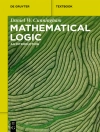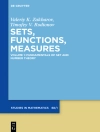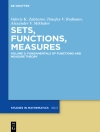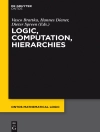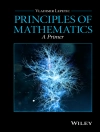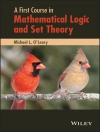In this volume, different aspects of logics for dependence and independence are discussed, including both the logical and computational aspects of dependence logic, and also applications in a number of areas, such as statistics, social choice theory, databases, and computer security. The contributing authors represent leading experts in this relatively new field, each of whom was invited to write a chapter based on talks given at seminars held at the Schloss Dagstuhl Leibniz Center for Informatics in Wadern, Germany (in February 2013 and June 2015) and an Academy Colloquium at the Royal Netherlands Academy of Arts and Sciences (March 2014). Altogether, these chapters provide the most up-to-date look at this developing and highly interdisciplinary field and will be of interest to a broad group of logicians, mathematicians, statisticians, philosophers, and scientists. Topics covered include
- a comprehensive survey of many propositional, modal, and first-order variants of dependence logic;
- new results concerning expressive power of several variants of dependence logic with different sets of logical connectives and generalized dependence atoms;
- connections between inclusion logic and the least-fixed point logic;
- an overview of dependencies in databases by addressing the relationships between implication problems for fragments of statistical conditional independencies, embedded multivalued dependencies, and propositional logic;
- various Markovian models used to characterize dependencies and causality among variables in multivariate systems;
- applications of dependence logic in social choice theory; and
- an introduction to the theory of secret sharing, pointing out connections to dependence and independence logic.
Spis treści
Introduction.- Durand, Kontinen, Vollmer, Expressivity and Complexity of Dependence Logic.- Väänänen, Grelling on Dependence.- Galliani, On Strongly First-Order Dependencies.- Grädel, Games for Inclusion Logic and Fixed-Point Logic.- Hodges, Remarks on Compositionality.- Hirvonen, Independence in Model Theory.- Ciardelli, Dependency as Question Entailment.- Link, Approximation Logics for Subclasses of Probabilistic Conditional Independence and Hierarchical Dependence on Incomplete Data.- Nyman, Pensar, Corander, Context-Specific and Local Independence in Markovian Dependence Structures.- Pacuit, Fang, Dependence and Independence in Social Choice: Arrow’s Theorem.- Blass, Introduction to Secret-Sharing.
O autorze
Samson Abramsky, Christopher Strachey Professor of Computing, Department of Computer Science, Oxford University, UK
Juha Kontinen, Academy Research Fellow, Department of Mathematics and Statistics, Helsinki University, Finland
Jouko Väänänen, Dean of the Faculty of Science and Professor, Department of Mathematics and Statistics, Helsinki University, Finland; Professor, University of Amsterdam, The Netherlands
Heribert Vollmer, Faculty of Electrical Engineering and Computer Science, Theoretical Computer Science Institute, University of Hannover, Germany




